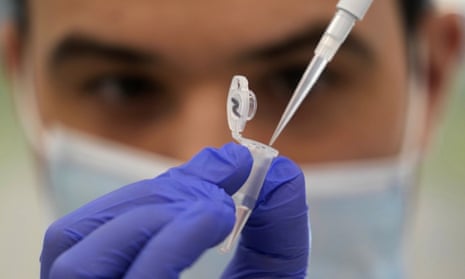China has overtaken the US to become the biggest contributor to nature-science journals, in a sign of the country’s growing influence in the world of academic research.
The Nature Index, which tracks data on author affiliations in 82 high quality journals, found that authors affiliated with Chinese institutions are more prolific than their US counterparts in physical sciences, chemistry, Earth and environmental sciences. The only category in which the US is still in the lead is life sciences.
The finding comes from a snapshot of the Nature Index’s data taken in April. The full data for 2022 will be released this year. Other organisations that track scientific research have also found the balance shifting towards China.
Last year, a report by Japan’s National Institute of Science and Technology Policy found that between 2018 and 2020, Chinese research accounted for a greater share of the top 1% of the most frequently cited papers than US studies. That report also found that China published a yearly average of 407,181 scientific papers, ahead of the US’s 293,434.
Citations of Chinese research have increased because of references to the sequencing of the Covid-19 genome. But although rankings of scientific research now place China ahead of the US, the two countries are the biggest bilateral research collaborators and many of China’s most-cited papers are produced in collaboration with international researchers.
As relations between the US and China sour it has become harder for scientists from those two countries to collaborate. Between 2018 and 2022 the US justice department’s china initiative, which had aimed to root out Chinese spies in US academia, resulted in more than 100 scientists losing their jobs. Chinese universities also scrutinise collaborations with foreigners.
Xi Jinping, China’s leader, has pushed for the country to become a world leader in scientific research. In February, he said the government would boost research funding as academia increasingly became a frontier for technological competition.
But Chinese researchers say they are pressured to prioritise quantity over quality, and there have been allegations of fraud or low-quality research being produced in order to boost the volume of output. In 2020, the Ministry of Science and Technology banned universities and research institutions from offering financial incentives for publishing more papers.
after newsletter promotion
Elisabeth Bik, a microbiologist, has uncovered hundreds of cases of unsubstantiated research coming from China. Bik has identified almost 650 examples of papers that use images seemingly from the same source. The research appears to come from a “paper mill”, a company that produces scientific papers on demand, often using fraudulent images or by selling the same pictures to multiple researchers.










